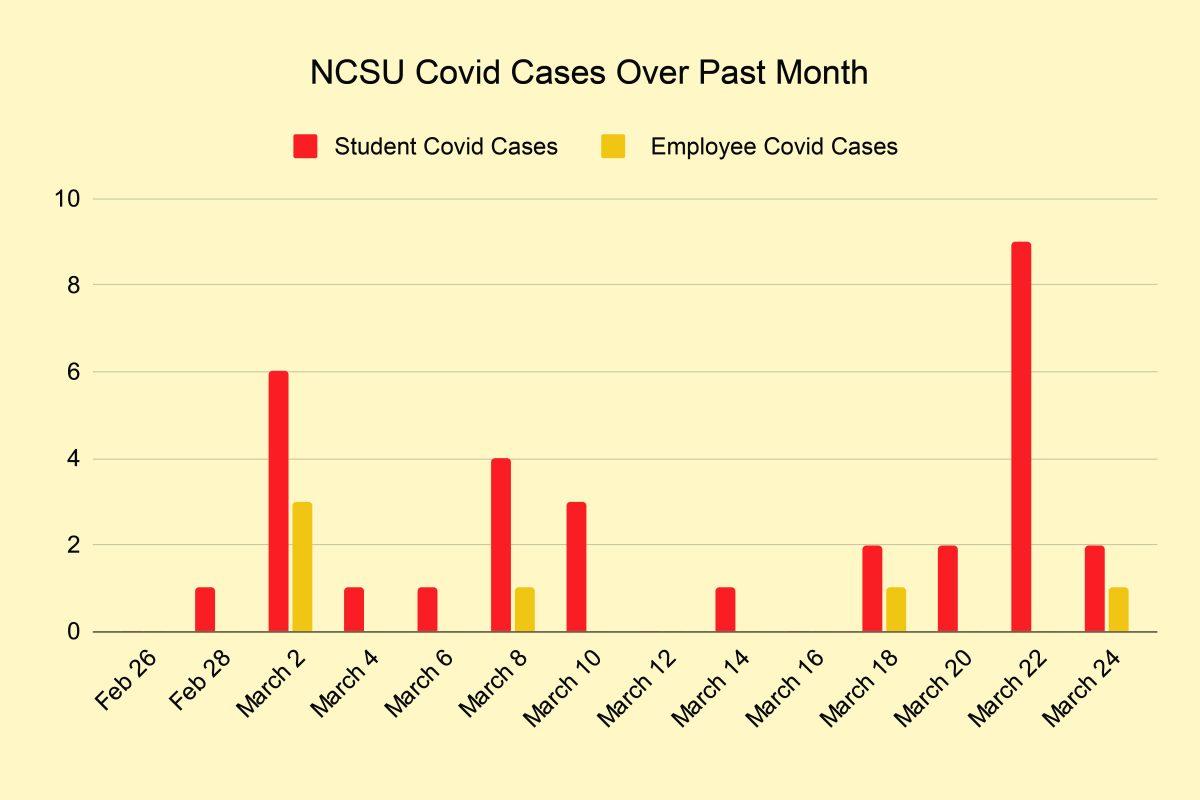Since the return to campus in January, COVID-19 cases on campus have been decreasing. The University has implemented many new guidelines including a more lenient mask mandate and no more required weekly testing.
Students expressed mixed feelings about the new guidelines that went into effect March 7, showing excitement and anxiety about going maskless in University buildings.
Dr. Julie Casani, the director and medical director of Student Health Services, headed contact tracing in classrooms. She stated that students rarely gave COVID-19 to other students in classrooms, even after testing positive.
“Even with masks off, the likelihood of you getting COVID-19 from classrooms is very low,” Casani said.
Along with a more lenient mask mandate, the University no longer requires unvaccinated students to go through weekly testing. Casani said these changes come as the state of the pandemic continues to evolve.
“At some point COVID will be endemic, right? It’ll be everywhere and it’ll be all the time,” Casani said. “When you start out in a pandemic, or you start out in a big outbreak, you’re very nihilistic in your approach; you clamp down, you do the maximum stuff because you really want to try everything to stop it. And so you take, if you will, a bit of liberty and you do that, and then you learn that, first of all, you can’t be like that all the time. … You can’t keep those restrictions on people anymore. They fight them. And they become counterproductive.”
Steven Greene, a public and international affairs professor at NC State who is working on a COVID-19 and public opinion project, said the University has various stakeholders it must satisfy, and that affects its various mandates.
“The reality is that we are a public institution, we’re responsible to a board of governors, we’re responsible to the legislature that does our budget, we’re responsible to the community here,” Greene said. “NC State and the leadership of NC State has to chart a course, through these various obstacles, if you will, or various interests, that all of which may have very different takes or perspectives on what the best approach for dealing with COVID is. … I haven’t agreed with everything, but throughout, they have been flexible and adaptable and changing in response to the changing circumstances of the pandemic.”
Greene said COVID-19 is becoming less of a high profile political issue with other world events happening.
“It’s just not front and center anymore,” Greene said. “We’ve got Ukraine, a Supreme Court justice and we’ve got really low caseloads. And it’s easy to all agree when we’ve got really low caseloads, and when hospitals aren’t overwhelmed… Let’s just say it’s rho, say we get this rho variant in like June, you know, the guarantee of politics will be back on.”
Casani said the University has been administering less tests this semester, moving from thousands of cases a day to hundreds. Even with these tests, few students are testing positive.
“We saw a huge explosion of cases in January, as we expected, and now we are almost living the dream where we have much fewer cases,” Casani said. “We have many, many fewer cases in absolute number, which is good news, but also relative to our testing rate.”
Despite the low cases this semester, the University had an increase in cases after returning from spring break, but the University was expecting it, according to Casani.
“[Students] did exactly what we wanted them to do; they got tested,” Casani said. “That was the most responsible thing to do.”
March 24 marked one year of administering vaccines on campus and having on-campus testing sites, according to Casani. According to NC State’s data tracking dashboard, over 85% of the University is vaccinated.
“I am very proud to have been part of being able to vaccinate people and provide that service on campus,” Casani said. “I think this was huge, we got a lot of support from the administration, and that’s a really important message.”
To see COVID-19 cases and patterns on-campus, students can view information via the University’s online COVID-19 tracker.













